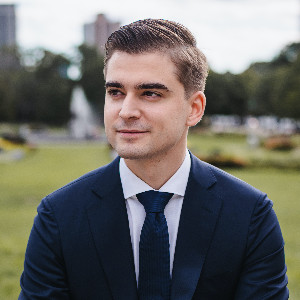How would you answer this question in your Personal Fit interview?
What is your idea of a perfect team?


For me, a perfect team brings together people with different skills, backgrounds, and levels of experience, but with a shared mindset when it comes to work ethic and commitment.
I think a team shouldn’t be too homogeneous, because diversity in experience and thinking adds a lot of value. But if it’s too fragmented, collaboration gets harder. Ideally, there’s a healthy mix, including more experienced colleagues, so junior team members can learn directly on the job. What matters most is that everyone shares a clear understanding of the team's goals and pulls their weight. There’s nothing more frustrating than when some people rely on others to do the work or take credit unfairly, that quickly creates tension.
It’s also important that people are comfortable asking questions and supporting each other when things get tough, without ego. I’ve learned the most in teams where I felt safe to contribute, but also challenged to grow.
Leadership plays a key role, too. Strong team leads are approachable and part of the team, but also know when to step up as decision-makers. They maintain a personal connection, but are clear in their responsibility, even if it means making tough calls that not everyone agrees with right away.
In an interview, I’d try to give a short example of when I experienced that dynamic, even in a university project or part-time job. It helps show how I value and contribute to team environments like that.
Rita

Hi!
That’s a classic personal fit question, and a deceptively tough one. A strong answer walks the line between being authentic and reflecting what firms are really listening for—your judgment, your self-awareness, and how well you work with others.
If I were in your shoes, here’s how I’d think about answering this in a personal fit interview—like at a consulting firm, private equity shop, or high-performing team environment.
"For me, a perfect team doesn’t mean everyone thinks the same or has the same strengths. Actually, it’s the opposite. The best teams I’ve been part of had three things: trust, complementary skills, and shared standards.
First, there has to be real trust—both personally and professionally. You need to feel safe pushing back, raising issues early, or saying 'I don’t know' without worrying that it’ll be held against you. That’s what keeps teams agile under pressure.
Second, complementary strengths matter a lot. I’ve been in teams where someone was incredibly detail-oriented while another person was great at communicating big-picture insights. That kind of balance lets people play to their strengths and focus on what they do best. I try to be aware of where I add value and where I might need to lean on others.
And finally, everyone needs to share a high standard for quality and accountability. That doesn’t mean perfectionism, but it does mean you can rely on each other to care. When that’s in place, you can move fast, support each other, and actually enjoy the work—even under pressure."
You could personalize that by tying it to a specific team experience—like a group project, a case comp, a sports team, or a deal team if you’ve had that exposure. The key is to show you’ve thought about how you fit into teams, not just what a good team looks like on paper.
Best,
Harrshit M Kansal, CFA, MBA
Leader, must be decisive and reassuring. Well balance of competences among other members. Good trust among members.

It’s best to focus on the qualities that help a team succeed together.
A perfect team, to me, is one where clear communication flows openly, and every member feels valued and heard. It’s a group where diverse skills and perspectives are respected, and people collaborate to turn challenges into opportunities.
Trust and accountability are key. Everyone takes ownership of their work but is also willing to support others. Finally, a perfect team balances ambition with empathy, pushing each other to grow while maintaining a positive and inclusive environment. Sharing a personal example where you’ve experienced or contributed to such a team can make your answer more genuine and memorable.

In a Personal Fit interview, a strong answer to this question should go beyond clichés like “collaborative” or “high-performing” and instead show that you’ve thought about what makes a team actually work. You might describe a team where there’s mutual trust, people are encouraged to challenge ideas without ego, and each person feels a sense of ownership.
A perfect team to you could be one where everyone brings different strengths, but they all align toward a common goal with clear communication and accountability.
To make your answer more personal, share a brief example of when you experienced something close to that ideal.
Maybe it was during a university project or a work setting where people supported each other during high-pressure moments and stepped in without being asked. This shows that you don’t just have an abstract idea of what a great team looks like—you’ve seen what works, and you know how to contribute to it. Your goal is to signal that you’re not just looking for the perfect team to join, but that you’re also someone who helps build it.

Ein perfektes Team ist in meinen Augen sehr sehr familiär und gleichzeitig absolut effizient aufgestellt.

